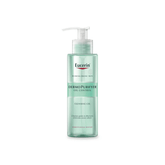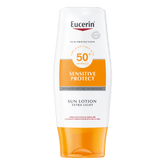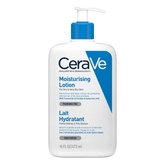14 Tips for Handling Sensitive Skin in Nigeria
It can be frustrating if your skin reacts to everything, but rest assured, you're not alone. Redness, itching, and product or environmental flare-ups are common indicators of sensitive skin. Managing sensitive skin in Nigeria can be a challenge due to its diverse climates and environmental issues. But fret not—this article is here to provide practical and personalised tips explicitly tailored for handling sensitive skin in Nigeria.
What is a sensitive skin?
Many people have sensitive skin, which reacts to numerous factors. Your skin seems highly selective about what it likes and dislikes. People may experience redness, itching, burning, or dryness. These symptoms can range from mild to severe, with severe cases often leading to Rosacea. Consider your skin a delicate flower readily upset by touch. It doesn't take much to disturb sensitive skin, like having a pal who's always on edge and ready to react to anything.
Harsh skincare chemicals, extreme weather like intense sun or freezing winds, and stress can provoke sensitive skin. Certain clothing fibres and detergents may also irritate your skin. You may have sensitive skin if your skin often feels uncomfortable or reacts negatively to things that don't bother others. Don't worry—many individuals have sensitive skin, and there are various ways to treat it.
6 common triggers for sensitive skin reactions
- Harsh chemicals in skincare products: Beware of perfumes, alcohol, and preservatives. These can bully sensitive skin, causing redness, irritation, and allergic responses. Choose "fragrance-free" and "hypoallergenic" goods to reduce risk. 'Hypoallergenic' means that your skincare product causes fewer allergic reactions.
- Extreme weather conditions: Hot weather or cold winds can damage sensitive skin. Sunlight can burn your skin, while chilly breezes can dry and irritate it. Use sunscreen and moisturisers for your skin type and cover up with caps and scarves.
- Stress: Stress can also damage skin! Tense or nervous hormones can cause inflammation and other skin concerns. It feels like your skin is under strain. This is because stress triggers the release of Cortisol, which can lead to acne breakouts. Deep breathing, meditation, and family time can reduce stress.
- Some fabrics: Clothes may be more harmful than you think. Rough or synthetic textiles can irritate and hurt skin. These fibres are hydrophobic and tend to trap moisture, which can irritate your skin. Wear cotton and silk instead of tight garments that trap sweat and allergens.
- Environmental pollution: Environmental pollution makes the air around you less pure than desired. Car, factory, and other pollution can block pores and cause inflammation. Daily facial cleansing removes dirt and impurities; antioxidant-rich skincare products protect skin.
- Allergens: Like food and plant allergies, your skin might also be allergic to specific substances. Pollen, dust mites, cat dander, and some foods are allergens for sensitive skin. Be aware of your skin's reactions and avoid recognised allergies.
Skincare routine for sensitive skin
Care for delicate skin demands gentleness and special attention. A soothing and protective skincare routine for fragile skin follows these steps:
- Begin your regimen by washing your face with a mild cleanser. Choose products without harsh chemicals and scents, which can irritate delicate skin. Scrub gently with lukewarm water.
- After cleansing, apply a moisturiser to hydrate and nurture your skin. Select a sensitive skin product without irritants. Look for hyaluronic acid and ceramides, which retain moisture without blocking pores.
- Use a broad-spectrum sunscreen daily to protect delicate skin from harmful sun rays. For sensitive skin, find a sunscreen with zinc oxide or titanium dioxide. If you'll be outdoors, reapply every two hours.
- Avoid irritating skin products, such as abrasive exfoliants, alcohol-based toners, and fragranced or dyed treatments. Patch test new products to see how your skin reacts.
- Drink plenty of water throughout the day to hydrate your skin from the inside out. Hydrating keeps skin plump and reduces dryness and irritation.
- Softly wash your face before bed at night to remove grime, oil, and makeup from the day. Use a calming night cream or serum to nourish your skin while you sleep. Retinoids and alpha hydroxy acids can irritate delicate skin.
By following these basic steps and being mindful of what you put on your skin, you can establish a robust skincare routine for sensitive skin. Consistency and patience are key—your skin will reward you with its improved health and resilience!
8 sensitive skin diet and lifestyle tips
Sensitive skin care encompasses diet and lifestyle as well as skincare products. Internally support your skin with these tips:
- Drink water throughout the day to hydrate your skin internally. Drink at least 8 glasses of water daily to avoid skin irritation and sensitivity.
- To maintain a balanced diet, aim to include a variety of fruits, vegetables, whole grains, and lean proteins. These nutritious meals include vitamins and antioxidants to boost skin health and resiliency.
- Limit alcohol and caffeine. These substances dry the body and skin, increasing the risk of irritation. Replace these drinks with water, herbal teas, or caffeine-free options.
- Spicy meals can cause redness and irritation in sensitive skin due to inflammation. If they irritate your skin, limit your intake or choose milder ones.
- These anti-inflammatory fatty acids, found in foods like fatty fish, flaxseeds, and walnuts, can soothe sensitive skin. Eat these foods consistently to promote your skin's natural barrier function.
- Food allergies and sensitivities can cause skin problems, so watch how your skin reacts. Keep a food diary to discover allergies like dairy, gluten, and nuts that may cause skin responses.
- Stress can worsen skin sensitivity and cause flare-ups. Deep breathing, meditation, and yoga can help reduce stress and balance your skin.
- Get 7-8 hours of sleep each night to repair and renew your skin. Sleep deprivation increases inflammation and sensitivity, disrupting melatonin production in the body, essential for producing antioxidant enzymes. Antioxidant enzymes block free radicals and repair oxidative damage to the skin. So, prioritise sleep regularly for healthy skin.
Remember, your diet and lifestyle choices can significantly influence your sensitive skin. By incorporating these habits into your routine, you can take control of your skin's health and achieve a better, happier complexion. The power is in your hands!
6 sensitive skin clothing and fabric options
When you have sensitive skin, your clothes can affect your daily comfort. Tips for picking garments and fabrics:
- Choose cotton, bamboo, or silk clothes. These textiles are mild on delicate skin and improve airflow, decreasing irritation and discomfort.
- Avoid rough textures and weaves that can irritate your skin. Instead, use soft, silky textiles.
- Clothing that rubs against your skin can increase irritation. Loose clothes let your skin breathe and move, reducing friction and irritation.
- Clothing residue from harsh detergents and fabric softeners can irritate delicate skin. Avoid fabric softeners and wash items with moderate, fragrance-free detergents.
- Polyester, nylon, and acrylic retain heat and moisture, irritating skin. To avoid skin sensitivities, use natural fibres whenever possible.
- Seams and tags can irritate sensitive skin if they rub against your body all day. Look for seamless or tagless clothing to avoid discomfort.
- Choose mild garments and textiles on sensitive skin to prevent irritation and improve daytime comfort. Choose wardrobe items that support your skin's health and well-being.
Conclusion
At Nectar Beauty Hub, we understand sensitive skin issues. This article should help you care for sensitive skin and have a better, happier complexion. As Nigeria's leading beauty store, we offer a collection of sensitive skin skincare items. Our selection includes mild cleansers, moisturising moisturisers, soothing serums, and sunscreen to meet your skin's demands.
Explore our sensitive skin skincare products on our website today to find the right solutions for your skincare needs. With our carefully chosen assortment and expert assistance, Nectar Beauty Hub will help you accomplish your skincare goals and enjoy healthy, glowing skin. Shop at the best beauty store in Nigeria, Nectar Beauty Hub, to start better skin now.















